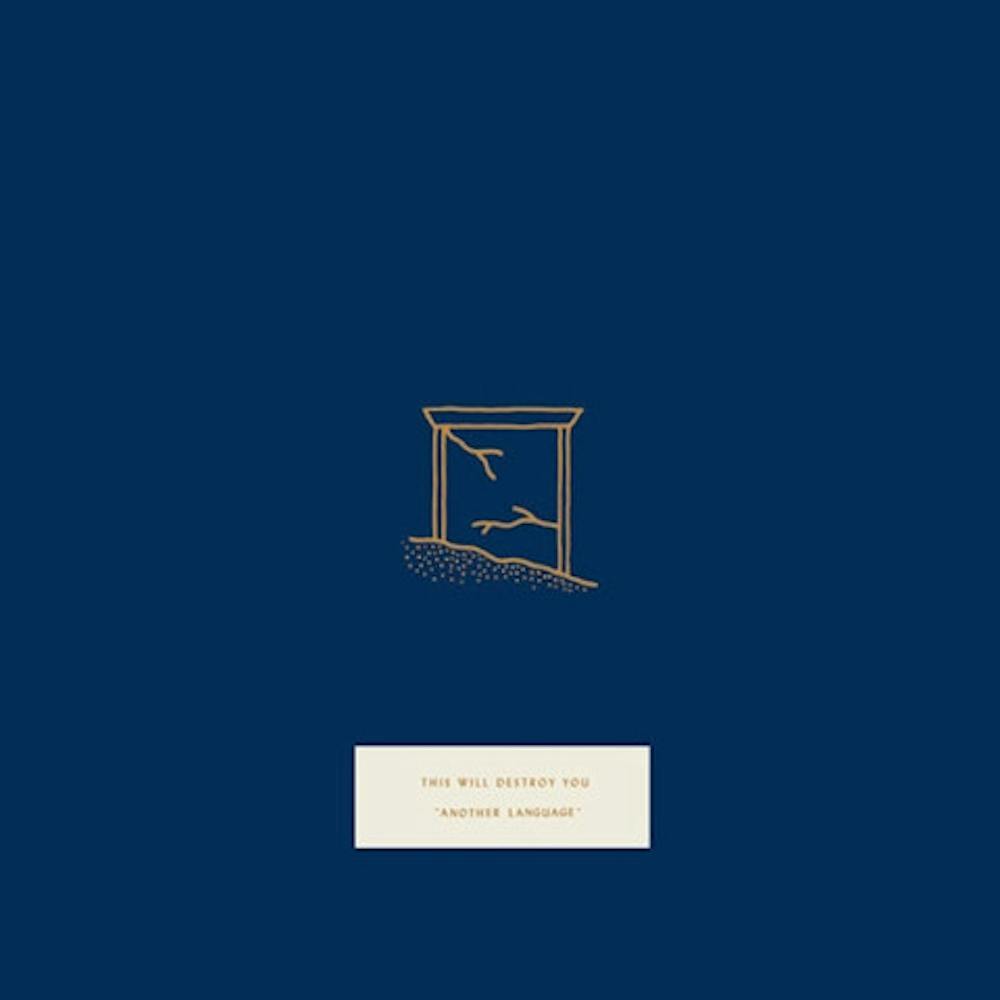6/7 stars
Some deem it fitting that This Will Destroy You hails from Texas. While this may complement the massive nature of the quartet’s sound, it cannot account for the essential gorgeousness of it; sensibility like that can’t be described by any real place. That said, the group’s new album, Another Language, to be released in the United States on Sept. 16 by Suicide Squeeze Records, is an audible paradise.
Seven months after the May 2011 release of the band’s second full-length album, the soul-burning Tunnel Blanket, Holy Other released his remix of This Will Destroy You’s “Black Dunes.” I noted how minimal the changes were, only a new house rhythm and a voice sample laid upon the multiplying ambience of the original track, and I recognized it as a nod to the independent darkness of the song and the record that Holy Other, producer of pitch-black yet scintillating, atmospheric beat music, using past remixes as an opportunity to drown artists like How to Dress Well in sound, didn’t have much work to do. Even without this nod, Tunnel Blanket is an album successful as per the intent of the band in sounding like death in the most moving way. As such, it represents a sonic and aesthetic departure for the group, trading past albums’ tanning warmth and light for a colorless lethargy, a slumber, a death.
And that’s when Another Language picks up, at the moment of waking. Between the album title, song titles, keywords “New” and “Topia” and “God’s,” and the actual, unreal sounds on this effort, one has a sense of being slowly awakened or revived from a stasis and a swelling vision that one has woken up somewhere unfamiliar, different from where they fell asleep. Maybe it is the morning after a night of ivresse, perhaps it is arrival in an otherworld; it could easily be both. For This Will Destroy You itself, for a band whose music and members have passed simultaneously through thematic life and death and periods of jeopardy on account of real world events and have now come to a point beyond death, this theory is description. The album’s philosophy regards the band as much as it does the music.
As to the music, no time is wasted as opener “New Topia” commences in a pivot on a trapeze of lithe guitar, atmosphere, and lush digital droplets, managing an alert pulse without then with drums which are rolling in the charisma of a wave throughout the record, creating and recreating something that is immediately vital, uplifting, and altogether exotic. This easy adrenaline sounds smooth in its summoning yet unearthly in its content and, as the group’s intended quintessence of divine rhythm, doomgaze and sentimental ecstasy, pervades every song hereafter; it is the thesis of the entire album.
More than on Tunnel Blanket, one can hear the kicks away from genre towards a mastery or auspicious discovery of experimental territory. While post-rock, a restraint that bassist Donovan Jones has explicitly rejected for the band, manifests in the efflorescent dynamics at play, it seems a shadow here otherwise, reaching decent length only when the audio spikes with Jeremy Galindo’s and Chris King’s iconic guitar eruptions, as on the first four songs of the album and on “Invitation;” with only one song here breaking seven minutes, there isn’t even room for the maturation of another post-rock opus like the band’s self-titled full length. Certainly, succeeding tracks “New Topia,” “Dustism,” and “Serpent Mound,” though containing magnificent dynamics and pretty, peculiar elements such as sampled chirps and disorienting glitches, are nearly identical in their more customary structure -- soft then loud then end -- and it actually becomes somewhat cloying, rendering “War Prayer” a greater novelty in its kinetic vehemence and heightening an appreciation of new forms in this work, whether they be marvelously ambient as “The Puritan” and “Mother Opiate” which glisten enough to belong in a playlist beside Tim Hecker or a drone of pounding fuzz and light as “Invitation” and “Memory Loss.” All of these songs, regardless of structure and style, form a shower of gratifying brilliance which clutch and pet the spirit into a heaven of noise.
Despite all the attempts at pioneering going on here, one can still hear the E-bow, the dynamics, the overdriven volcanism, the raw feeling and traces of everything from the first releases that has exalted this band to a status worthy of its name, and the fresh elements introduced here are not corrosive or in opposition to the group’s inherent glory. So, while one may adore Young Mountain and This Will Destroy You more than any other records on one’s shelf, it’s very difficult to regret Another Language for its stylistic distance from its predecessors. In fact, it’s very easy to fall in love with this latest work because it sounds different and yet complete, like a true modern masterpiece. When final track “God’s Teeth” culminates in what is one of the most enigmatic last sounds and potentially the most experimental thing about this album, a single, sinuous bass blip that could share a frequency with the beginning and end of the universe, there is nothing left to hear, and there is nothing left to have heard. No beauty unborn, no ear-dream unfulfilled, rather slightly overindulged, This Will Destroy You has done a clean job of transporting listeners to a neural dimension of wordless awe.





